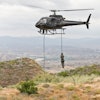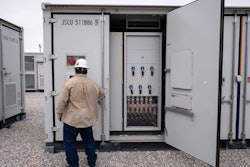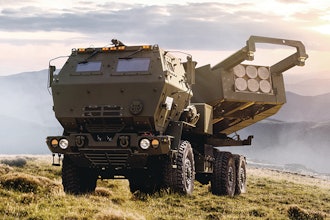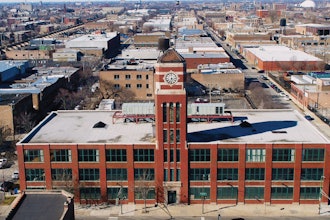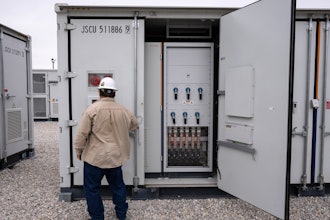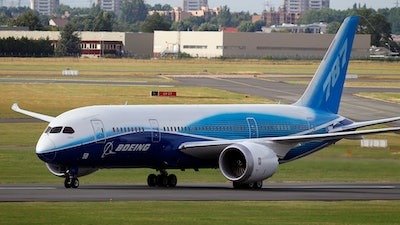
Boeing lost $425 million in the first quarter — more than Wall Street expected — but said Wednesday that it plans to boost production of its best-selling plane later this year.
Revenue rose 28% from a year earlier, as airlines scooped up new jets to meet rising travel demand.
The company also stood by its forecast of producing $3 billion to $5 billion in cash flow this year.
Shares of Boeing jumped about 4% before the opening bell Wednesday.
CEO David Calhoun called it "a solid first quarter."
"We are progressing through recent supply chain disruptions but remain confident in the goals we set for this year, as well as for the longer term. Demand is strong across our key markets," he said in a statement.
Boeing's passenger jets have been plagued by production problems, and it took a write-down in the first quarter for a military tanker.
The Arlington, Virginia, company said the loss in core operations worked out to $1.27 per share. Analysts expected the company to lose $1.07 per share, according to a FactSet survey.
Revenue climbed to $19.92 billion, beating analysts' forecast of $17.52 billion.
Calhoun said last week that Boeing will delay deliveries of some planes that airlines were expecting for the busy summer travel season. The delays are due to unapproved fittings that a contractor installed between sections of the fuselage on most 737 Max jets built since 2019.
Calhoun didn't give a number of deliveries that will be delayed by the actions of the subcontractor, Spirit AeroSystems, but said that 9,000 seats would be missing from airline schedules this summer, which works out to about 50 Max jets.
Despite the setback, Boeing still hopes to hit its goal of delivering 400 to 450 Max jets this year. It delivered 111 in the first quarter.
Boeing said it still expects to increase Max production. The company was building 31 a month at the start of this year and plans to raise that to 38 a month later this year and 50 a month by 2025 or 2026.
Boeing repeated earlier assurances that the fuselage issue on the Max does not affect safety and that airlines can keep using planes that are already carrying passengers.
On the defense side of its business, Boeing took a $245 million charge to fix problems with its KC-46A refueling tanker.
Boeing shareholders are on the hook for a $414 million loss in the first quarter, with another $11 million loss attributed to a noncontrolling interest.


